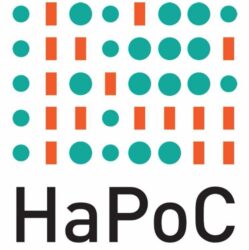It is my pleasure to announce the start of the ANR project “What is a (computer) program?” (http://programme.hypotheses.org) with a two days event to be held on February 7-8 at MESH, rooms 1 and 2, Espace Baïetto, 2 Rue des Canonniers, 59000 Lille.
On February 7, we will have a session of the Lille-Paris séminaire “History and Philosophy of Computer Science and Computing (HEPIC)” with participation of Cliff Jones and Samuel Goyet (see http://calcul.hypotheses.org for more details). On February 8 we will have the workshop “Models between structures and meanings of programs” which introduces the project followed by several talks from members of the project.
In order to register (February 7 and/or 8), please send a mail with your affiliation to: liesbeth.demol@univ-lille3.fr. Registration is free but required in order to attend.
/Abstract for the workshop/ What is a (computer) program? This is a deceivingly simple question which today has many different answers that affect quite basic societal issues such as problems of responsability and accountability. The main assumption of the project PROGRAMme is that in order to give a proper analysis of the notion of program, one needs to give an account and take into account the following three structuring and historically-developed modalities of “program”:
(1) physical: program as stored and executed on a machine
(2) formal: program as (formal) text
(3) socio-technical: program as used and made by people
The ambition then is to offer a historico-philosophical analysis of “program”, structured along these three modalities. One basic methodological approach is to focus on “models” and their abstractions, where “models” are understood in their most generic sense and can refer to both concrete machine models (and how these shape, for instance, program code) as well as to more abstract models like lambda-calculus.
The aim of this workshop is then to introduce the project as well as to offer a set of more in-depth studies focusing on the issue of how models are reciprocally developed and shaped by both the structures and meanings of programs where both structure and meaning can relate to each of the three program modalities. As such, this workshop will deepen the discussions initiated at the roundtable “What is a (computer) program?” (https://programme.hypotheses.org/prelaunch_en) as well as develop some basic themes to be included in future research collaborations.
/Programme:/
09.00-11.00: Introduction of the project and its members
11.00-11.30: BREAK
11.30-12.15: Mark Priestley, “Program structure and its graphical representation c. 1946”
12.15-13.00: Giuseppe Primiero, “Identity criteria for programs”
13.00-14.30: LUNCH
14.00-14.45: Edgar Daylight, “Towards a History of Model-Modellee Conflations in Computer Science”
14.45-15.30: Pierre Mounier-Kuhn, “Les notions de ‘programmes” dans la machine de Couffignal”/The notion of `programs’ in the Couffignal machine”
15.30-16.00: BREAK
16.00-16.45: Ray Turner, “The Ways of Computational Abstraction”
16.45-17.30: Maël Pégny, “Are machine learning algorithms programs?”
17.30-18.15: Tomas Petricek, “The Inner Life of Programming Concepts”
The workshop and séminaire are supported by the platform DATA of MESHS and the the ANR project PROGRAMme.
